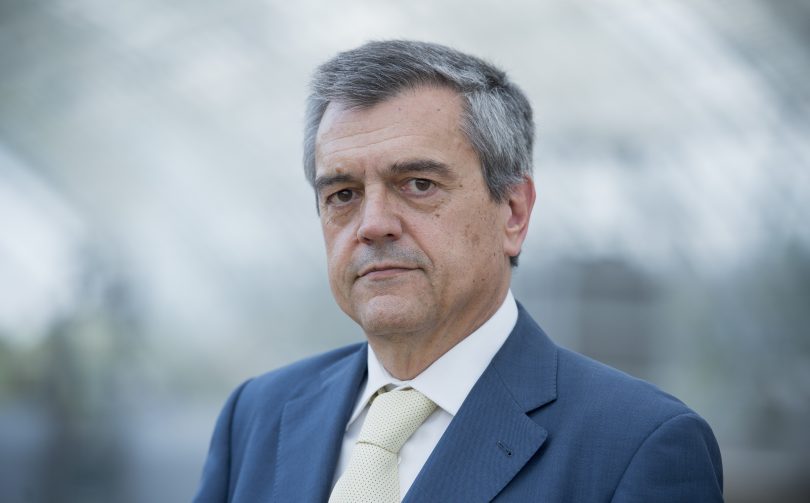Humans don’t enjoy being stuck somewhere. We like to move, go places. In fact, man values this mobility so much that he created extraordinary tools to get from A to B, starting with the wheel and not ending with the airplane.
We value our freedom of movement because it generates such incredible value for us. Imagine for a moment that all the means of transport you are using have disappeared: Not that easy to get to work. No fresh groceries in the supermarket. You will need to walk to the doctor despite that sore knee.
Conjecture? Not for millions of people around the world who lack of access to transport – and therefore to the things that transport provides access to. There are still children that do not go to school simply because they cannot get to school. It’s the same for health services and jobs. And it’s true for the larger economy as well – well-connected countries tend to thrive; those that do not struggle to bring their goods to world (or indeed national) markets.
We won’t be easily persuaded to give up the freedom to hop into a car or on a plane. On the contrary, billions of people in the emerging economies are discovering the advantages – and joys – of modern-day mobility. If anything, global demand for transport will grow.
In itself that is not a bad thing, but only if we manage to – among other improvements – decarbonise transport. Today, our mobility is almost completely driven by fossil fuels. Transport emissions make up almost a quarter of all CO2 emissions from fuel combustion – by 2035 the share could reach 40%, which would make transport the world’s largest emitting sector. Even the electricity for electric cars or for trains often comes from coal or oil-powered plants.
The link between mobility and harmful CO2 emissions must be broken if we want to continue to remain as mobile as we are. If governments were forced to limit mobility in order to save the planet, the economic, political and human costs could be huge.
The better way is to provide carbon-free transport. Around 1900, the majority of cars in New York City were electric – let’s go back to the future. In Africa, shared mobility has been the norm for a long time – let’s learn from the experience of others. We need to be clear that technological progress alone will not solve the problem. To decarbonise transport over the next 35 years or so, all the levers we have at our disposal need to be aligned towards this goal. Many of these are outside the transport sector: digital connectivity and 3D printing may make some passenger and freight transport superfluous in the future. Tools that better allocate existing capacity reduce traffic (the average car is idle 23 hours per day). Innovative urban land use policies can be highly effective in reducing the need for travel.
The International Transport Forum is launching a major initiative to help achieve this alignment of policies. Our Decarbonising Transport project will provide decision makers with an effective tool to develop a road map towards CO2-free mobility, and then help to navigate it. It will allow governments and enterprises to test and gauge the impact of individual actions in a highly complex and interdependent reality. More about it at www.itf-oecd.org.
The Decarbonising Transport project is built around three core elements. The first is COP21. The text of the Paris agreement doesn’t mention the word transport. Neither do most national commitments by the signatories (and those that do are heavy on generalities and wishful thinking). But nations are finally embarking on a step-by-step pathway towards decarbonisation with reviews of progress every five years from 2020. This creates a huge challenge for transport: It is now up to the sector to demonstrate how carbon-free mobility can be achieved. If it doesn’t succeed, transport runs the risk of becoming the outlier and everyone’s favourite bad guy.
Second: the data. The Decarbonising Transport project will evolve around in-depth quantitative analysis. Our ambition is to federate existing data and knowledge on transport to create the most comprehensive model of global transport activity to date. ITF has strong in-house modelling, and we are already reaching out to potential partners to link up existing models and leverage their collective power to become more than the sum of the parts. Decision makers will be able to use the simulations to calibrate their emissions reduction actions.
The third characteristic of the Decarbonising Transport project is that it will be inclusive. The modelling will serve dialogue and mutual learning among a broad set of partners who are joining forces to design the roadmap towards carbon-neutral transport. Governments, corporations, universities, multilateral institutions, foundations, NGOs will all have their place and contribute knowledge, data or money. Nineteen major international companies are already involved through the ITF’s Corporate Partnership Board, in which the project is anchored.
The Decarbonising Transport project will be officially inaugurated on 19 May, at the ITF’s 2016 Summit in Germany. We plan to present intermediate results a year later. And by May 2019, we want the modelling to be robust enough to provide effective support to the 2020 reviews of COP emissions reduction commitments.
This is an open project, and very much a work in progress. All who have an interest in helping to make our mobility, and therefore our way of life, sustainable are invited to become part of the effort.
José Viegas, Secretary-General, International Transport Forum





